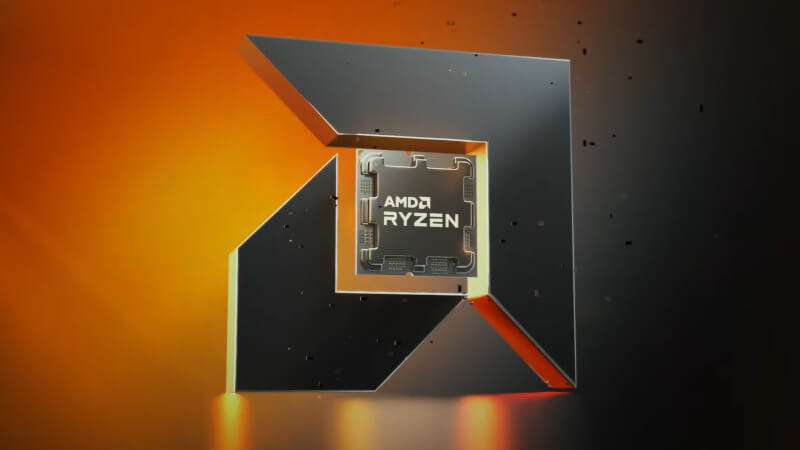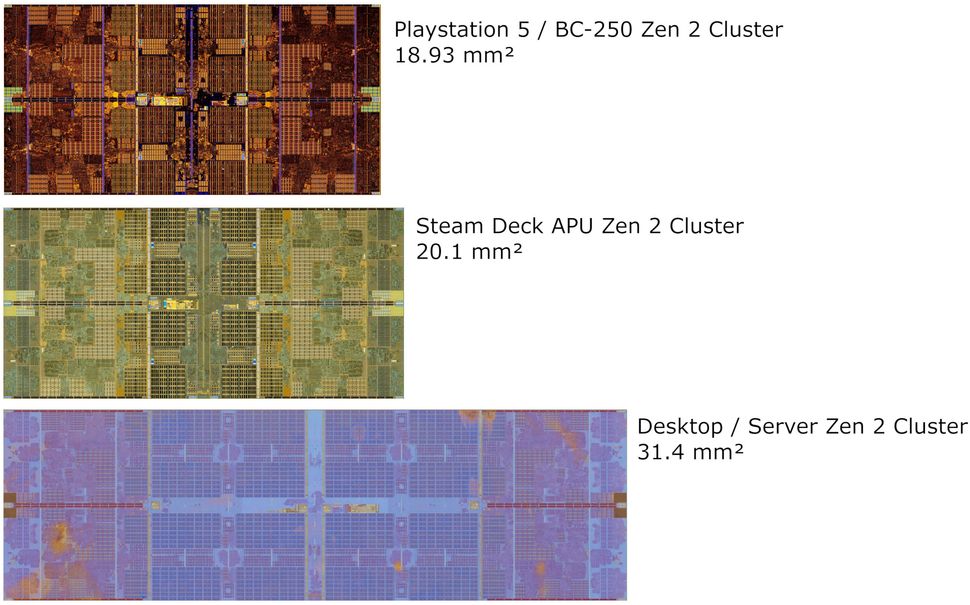New details on AMD CPU in PlayStation 5

The chip review site found that Sony's custom-designed Zen 2 chip has a heavily scaled-down FPU, allowing the CPU to be shrunk by 35%. However, Chips and Cheese discovered that these changes do not affect gaming performance, making it the "perfect" gaming CPU.
The area where AMD put the most emphasis when designing Sony's custom Zen 2 PlayStation 5 CPU was the FPU, or floating point unit. AMD reduced the number of floating point pipes and eliminated some of the FP/vector execution units. Compared to a comparable Zen 2 Ryzen CPU desktop chip like the Ryzen 7 3700X or 3800X, Sony's custom Zen 2 chip comes with only half the FPU capacity of a 3700X or 3800X.

To achieve this, AMD added more functionality to the remaining floating point ports. In a traditional Zen 2 chip, there are four gates, with the majority of the gates handling duplicate instructions. However, with the PS5 CPU, all duplicates have been deleted and the fourth port has been deleted completely. Ports 0 and 1 handle all the instructions, while port 2 only handles the FStore.
AMD also shrunk the registry file to improve size efficiency. The number of blocks the registry file has is the same as AMD's Ryzen 3000 chips, but the size of each block is smaller. Chips and Cheese believes this was a design change made in conjunction with the reduction of the FPU port count, apparently because the performance impact of a smaller register file size is directly correlated to the capabilities of the FPU.
Chips and Cheese found that these changes made no difference in game performance. In a test with Call of Duty: Black Ops - Cold War Zombies, the chip review site monitored the FPU execution units and found that none of the EUs were burdened more than 20-22%. The only benchmarks where the FPU downgrades compromised performance were in heavy productivity/synthetic tests like Y-Cruncher. But even in the Y-Cruncher, performance only dropped by 16% (compared to a normal Zen 2 chip), even though it actually has half the FPU execution pipeline of a traditional Zen 2 CPU.

With these changes, AMD was able to reduce the size of Sony's PS5 Zen 2 CPU by a whopping 35% while offering identical gaming performance to Zen 2 chips (at identical clock speeds and memory speeds, that is). It is an excellent representation of AMD's ability to design chips specifically for its customers. Interestingly, these specific changes have only been made to Sony's PS5 CPU, and no other custom-designed chips that AMD is currently making (including Steam Deck's Van Gough APU).
This design seems to work well for Sony. Leaked specifications of the PlayStation 5 Pro suggest that Sony will continue to use this same Zen 2 chip, but with a dual-mode performance mode that allows developers to clock the CPU to 3.85GHz if it is required.
Latest processor - cpu
-
26 Aprprocessor - cpu
-
26 Aprprocessor - cpu
TSMC's new COUPE tech ready in 2026
-
26 Aprprocessor - cpu
First NVIDIA DGX H200 for OpenAI
-
25 Aprprocessor - cpu
Qualcomm unveils Snapdragon X Elite
-
25 Aprprocessor - cpu
TSMC's 'A16' chip poised to challenge Intel in 202
-
25 Aprprocessor - cpu
Nvidia is still strong on AI but can be challenged
-
23 Aprprocessor - cpu
China acquires banned Nvidia chips
-
19 Aprprocessor - cpu
SK hynix and TSMC collaborate on new chips
Most read processor - cpu
Latest processor - cpu
-
26 Aprprocessor - cpu
Nye AMD Strix Point, Strix Halo spec leaks
-
26 Aprprocessor - cpu
TSMC's new COUPE tech ready in 2026
-
26 Aprprocessor - cpu
First NVIDIA DGX H200 for OpenAI
-
25 Aprprocessor - cpu
Qualcomm unveils Snapdragon X Elite
-
25 Aprprocessor - cpu
TSMC's 'A16' chip poised to challenge Intel in 202
-
25 Aprprocessor - cpu
Nvidia is still strong on AI but can be challenged
-
23 Aprprocessor - cpu
China acquires banned Nvidia chips
-
19 Aprprocessor - cpu
SK hynix and TSMC collaborate on new chips






